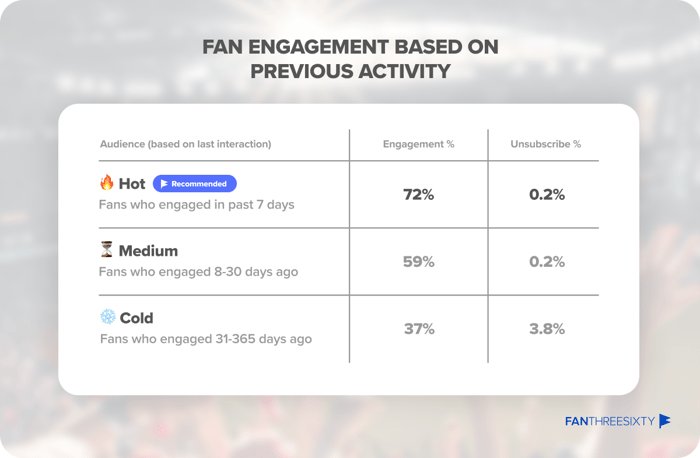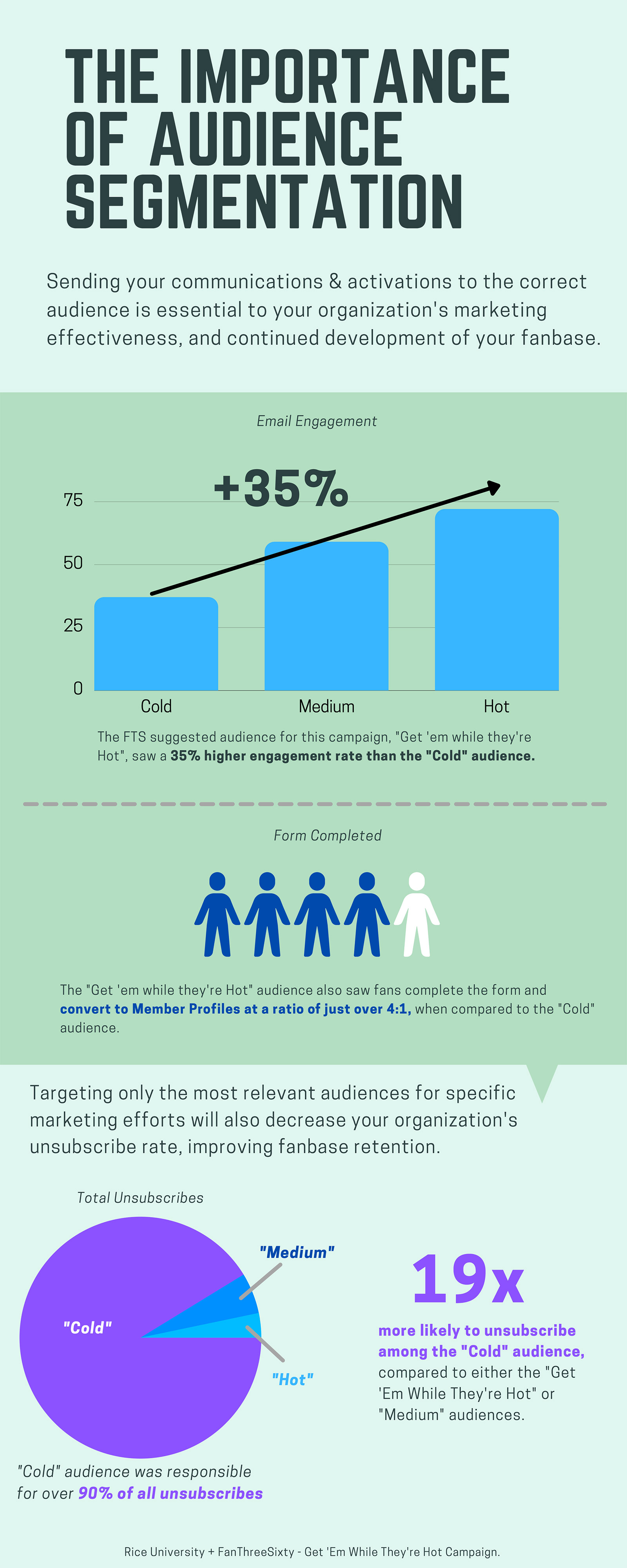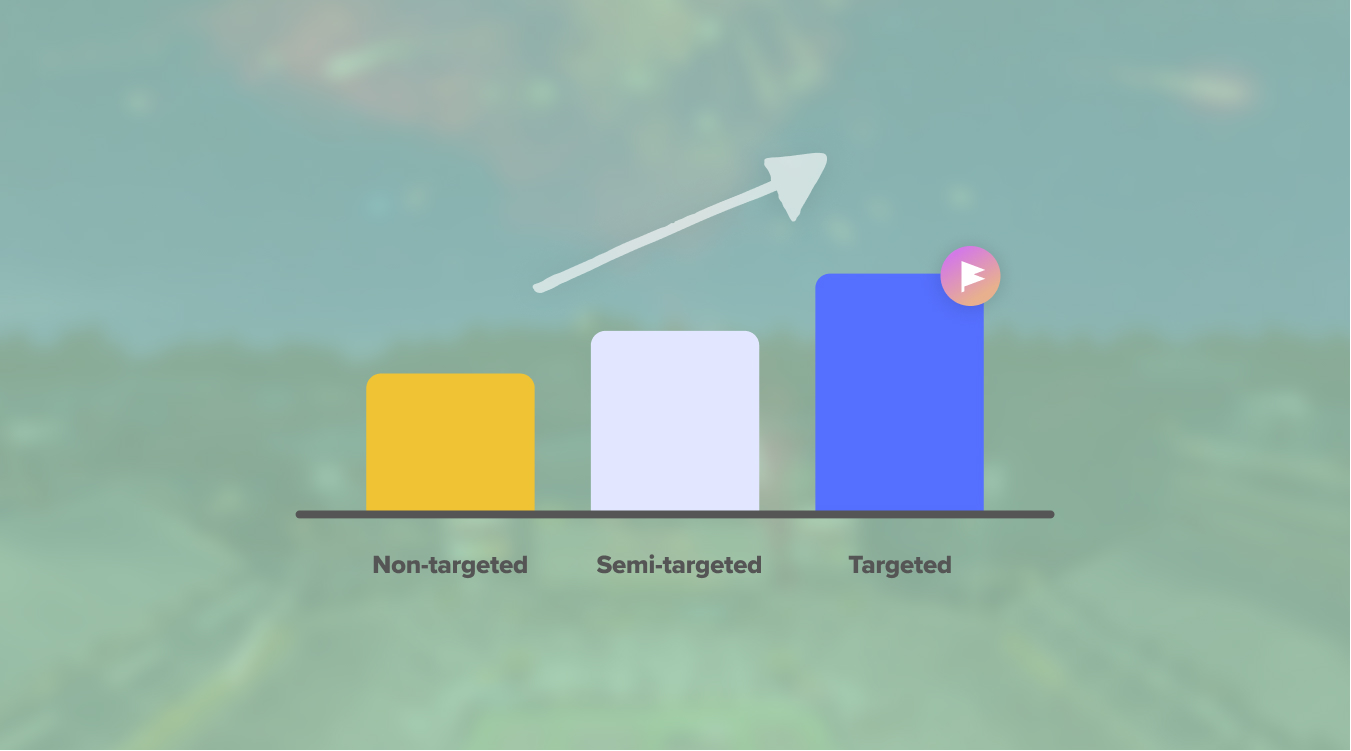Consumers demand personalized, relevant communications and experiences from the brands they engage with. They connect best with brands that tailor messaging and marketing to their interests and behaviors. To highlight the reach of data-driven marketing in today's world, nearly 9 out of 10 retail or e-commerce brands in the United States report using some form of personalization in their marketing efforts.
Audience segmentation is a tried and tested strategy that increases the personalization of your marketing efforts, and in turn, their engagement rate.
Audience segmentation is a tried and tested strategy that increases the personalization of your marketing efforts, and in turn, their engagement rate. According to MailChimp, targeted email campaigns get about 15% more opens and 100% more clicks than non-targeted campaigns.
As personalization has become the standard in many industries (retail, e-commerce, streaming services, etc.), it's still somewhat immature for the sports marketing and ticket sales industries. At FanThreeSixty, it's our mission to bring it to the forefront.
In partnership with Rice University, we designed a campaign to help quantify the benefits of sending communications and activations to the most relevant audience (based on fan behavior).
Our Data Science team built an audience called Get 'em while they're hot, a group of recently active fans who are primed to engage with a new campaign. We measured the likelihood that this audience and other segments of Rice’s fanbase would engage with an email to drive an increase in contest entries.
The email was sent to three different audiences based on their previous engagement with email, mobile, and attendance:
- 🔥 Hot: Fans who engaged in the last 7 days
- ⏳ Medium: Fans who engaged between 8–30 days ago
- ❄️ Cold: Fans who engaged between 30–365 days ago
The results show a significant increase in engagement for the “Hot” fans, the audience FanThreeSixty recommends for this type of campaign.
 Targeting the right audience for your marketing also has a secondary benefit: not overwhelming or alienating your fans with irrelevant communications.
Targeting the right audience for your marketing also has a secondary benefit: not overwhelming or alienating your fans with irrelevant communications.
Targeting the right audience for your marketing also has a secondary benefit: not overwhelming or alienating your fans with irrelevant communications.
50% of consumers say they opt out or ignore emails that are irrelevant and 64% say the same for emails sent too frequently.
Both of these benefits are on display in the results of our case study with Rice University:


